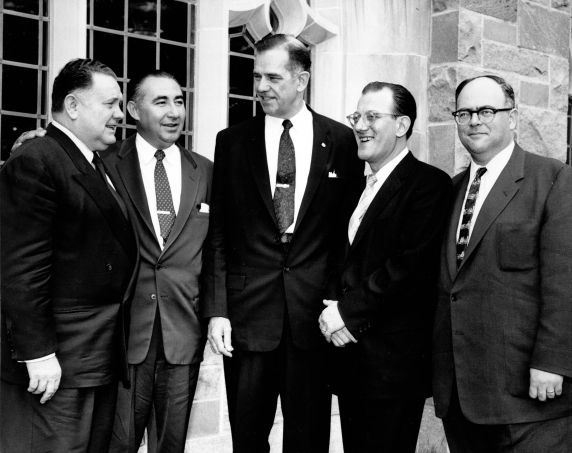(11560) Labor Institute on Human Rights
Posted October 28th, 2009 by jruss
in
Labor leaders chat between sessions at the 1962 Labor Institute on Human Rights in Boston. From left: Stephen E. McCloskey, secretary-treasurer of the Boston Central Labor Union; Emil Mazey, secretary-treasurer of the UAW; AFSCME President Arnold Zander; Joseph Cass, education director of the Massachusetts State CIO; and Julius Bernstein, executive secretary of the Labor Committee to Combat Intolerance.

Date:
July 1962Physdesc:
PhotographPhotographer:
Egan Photo Services- Login to post comments
- Thumbnail
- Printer-friendly version

 Reddit
Reddit Facebook
Facebook LinkedIn
LinkedIn